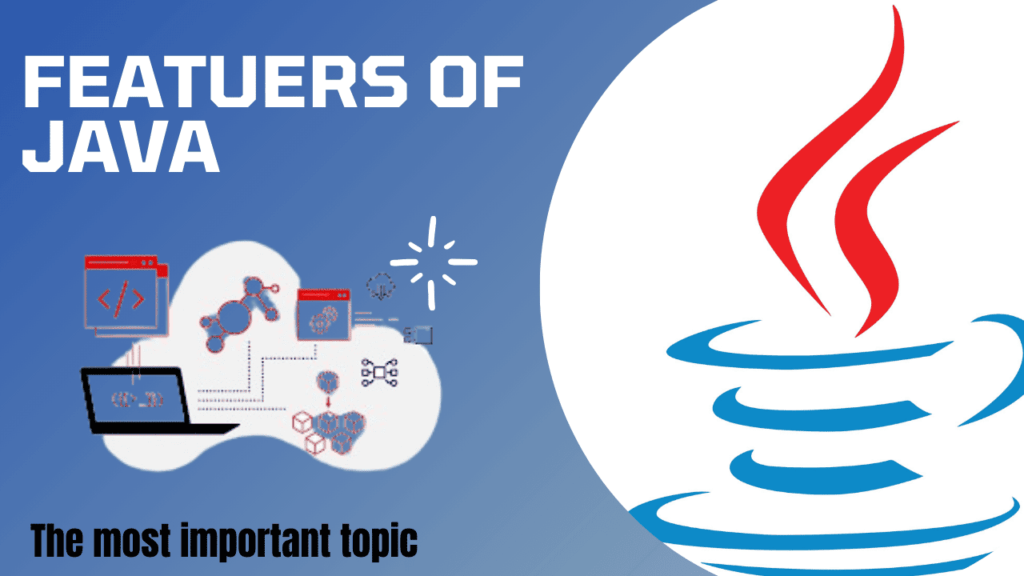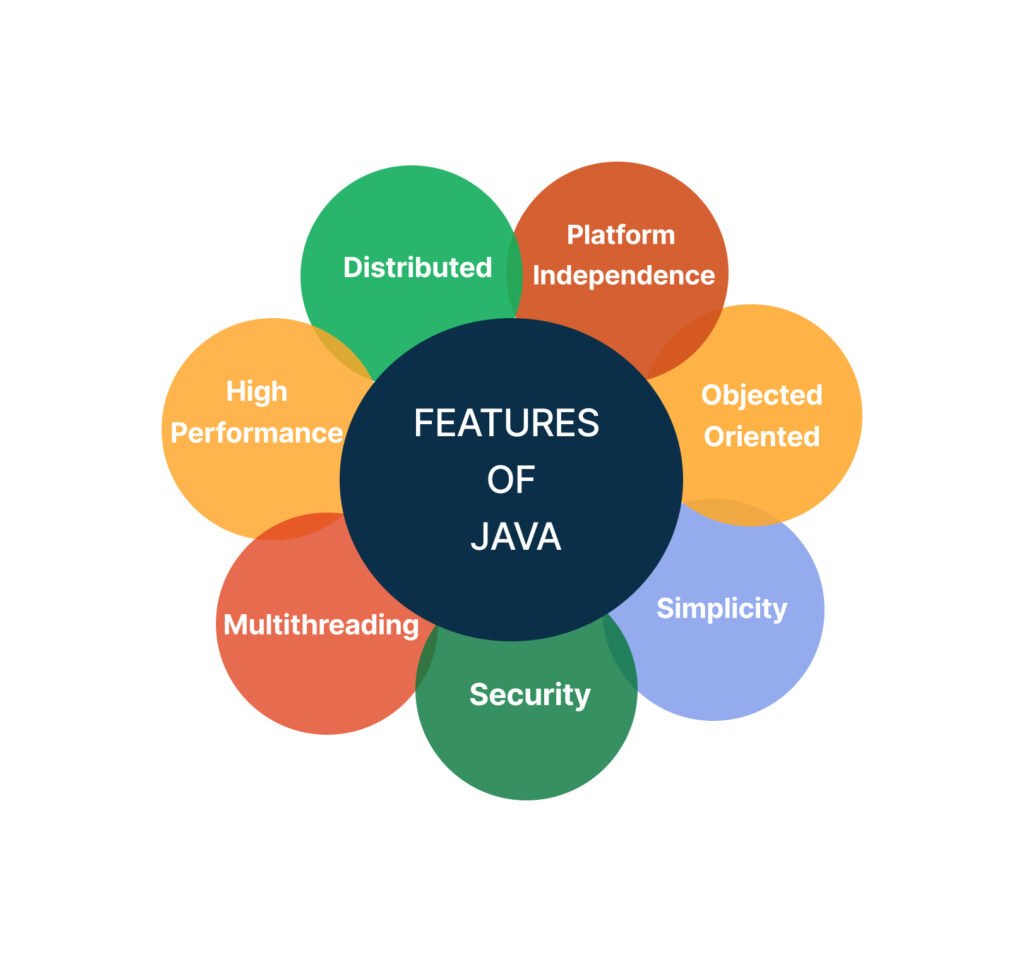Introduction to the Features of Java

Why Study the Features of Java?
Java’s features are what make it one of the most powerful, versatile programming languages available. From platform independence to robust security, these features are key to Java’s widespread use in real-world applications and career development for software engineers, web developers, and system architects.
What Will Be Covered?
The Features of Java topic will look at Java’s key features, such as platform independence, object-oriented programming, simplicity, security, portability, and multithreading. Additionally, we will provide practical examples to help you understand and apply each feature. By exploring these features in detail, you’ll see how Java stands out as a versatile programming language and why it remains a popular choice among developers today.

Platform Independence and Portability
Java’s platform independence is one of its most powerful features. The Java Virtual Machine (JVM) allows Java programs to run on any platform, making it highly portable. By compiling code into bytecode, the JVM ensures compatibility across various devices and operating systems. This portability is crucial for web and cloud-based applications where cross-platform support is needed.
Object-Oriented Programming in Java
Java uses object-oriented programming (OOP), which allows developers to create modular code. With concepts like inheritance, encapsulation, polymorphism, and abstraction, OOP makes managing large software projects easier. These features help keep the code organized and efficient, especially in complex systems. Because of OOP, Java remains popular for enterprise applications.
Simplicity and Ease of Use
Java is designed for simple and user-friendly. Its syntax resembles English, making it easier for beginners to learn. Java avoids complex elements found in other languages, like pointers and operator overloading, which can complicate code. This simplicity helps developers write and maintain code more efficiently, making Java an accessible language for all levels.
Security Features in Java
Java was designed with simplicity in mind, making it accessible even for beginners. Its syntax closely resembles English, reducing the learning curve for new developers. Unlike other languages, Java avoids complex elements like pointers and operator overloading, which can make code harder to read. As a result, developers find Java easier to learn and maintain over time, making it a widely accessible language.
Multithreading in Java
Java’s support for multithreading allows programs to run multiple tasks simultaneously, which is essential for large applications. For instance, in game development, multithreading enables graphics rendering and processing to happen at the same time. This setup improves efficiency and results in smooth, responsive applications that use system resources optimally.
Memory Management with Automatic Garbage Collection
Memory management is another significant feature of Java because of its automatic garbage collection. In particular, the garbage collector autonomously removes unused objects, which helps prevent memory leaks and keeps applications efficient. As a result, developers can focus more on the application logic rather than on manual memory management, thereby improving productivity
Java’s Distributed Computing Capabilities
Java is well-suited for distributed computing, where multiple systems collaborate over a network. With Remote Method Invocation (RMI) and Enterprise JavaBeans (EJB), Java allows for seamless resource sharing and communication across different networks. This feature is especially valuable for enterprise applications, as it supports cloud-based and distributed environments.
Summary of Java’s Core Features
Java’s key features – platform independence, simplicity, security, and multithreading—are what make it a preferred choice for developers worldwide. Understanding these features of Java gives a solid foundation for developing efficient, secure applications across different platform.
Learning Outcomes for Features of Java
By the end of Features of Java, You will be able to:
- Identify and describe the essential features of Java
- Apply object-oriented principles in Java
- Leverage multithreading for efficient programming
- Understand security measures integral to Java programming
Common Interview Questions on Features of Java
1.What is bytecode, and how does it contribute to Java’s platform independence?
Bytecode is a compiled form of Java code that can be executed on any platform with a Java Virtual Machine (JVM), enabling cross-platform compatibility.
2.Explain the significance of the Java Virtual Machine (JVM) in running Java applications on different operating systems.
The JVM allows Java programs to run on various OSs by interpreting the platform-independent bytecode, providing flexibility for cross-platform applications.
3.How does Java achieve portability, and why is it important for distributed applications?
Java achieves portability through bytecode, which the JVM can execute on any platform. This is essential for applications that need to run consistently across multiple devices and operating systems.
4.What are the key benefits of using object-oriented programming (OOP) in Java?
OOP principles like encapsulation, inheritance, and polymorphism help developers manage code structure, reuse, and organization, making Java well-suited for complex applications.
5.In Java, how is memory managed, and what role does garbage collection play?
Java uses automatic garbage collection to remove unused objects from memory, which prevents memory leaks and reduces manual memory management efforts for developers.
6.Why is Java considered a robust programming language?
Java is robust because it includes features like strong memory management, error handling, exception management, and type-checking. As a result, these elements help avoid system crashes and improve stability.”
7.How does Java ensure security in applications? Name some of its security mechanisms.
Java provides security features like bytecode verification and sandboxing, which restrict unauthorized access and prevent malicious code from harming the system
Practice Exercises for Features of Java
1.Write a Java program demonstrating multithreading.
2.Create a sample code to show encapsulation and inheritance in Java.
3.Develop a Java application that highlights its platform independence.
Additional Resources
- Online tutorial: Java’s Multithreading Essentials
- Article: “Java Security in Depth” on Medium
- Tool: IntelliJ IDEA for Java development
Test your Knowledge:
Question
Your answer:
Correct answer:
Your Answers
